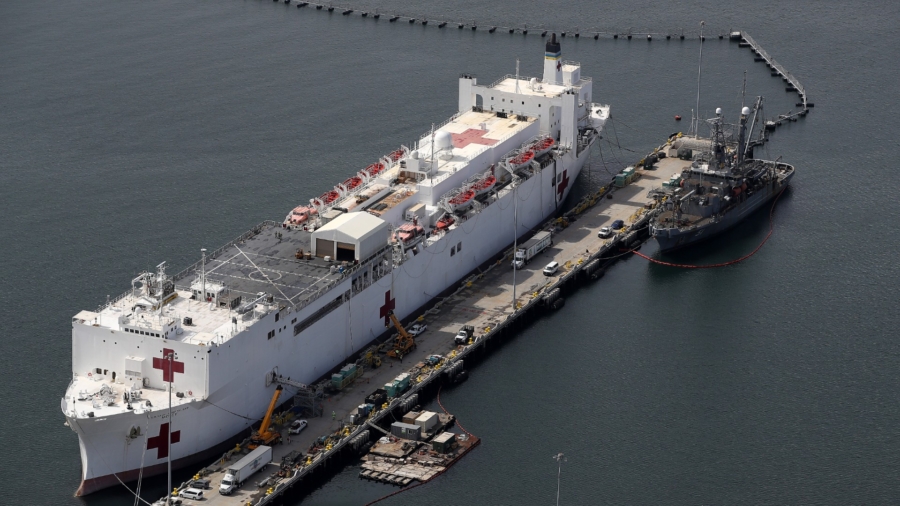The Solomon Islands has received the U.S. Navy hospital ship, the Mercy, during its inaugural visit to the island despite earlier rejecting a scheduled port call from U.S. Coast Guard vessel, the Oliver Henry.
On Aug. 31, the Solomons government released a statement saying Prime Minister Manasseh Sogavare spoke at the welcoming ceremony for the Mercy.
The hospital ship is one of the largest vessels to visit the Pacific nation and will provide extensive medical services to civilians of the Solomons with over 1,000 dental services and 70 surgeries.
The Mercy team will also deploy teams to the Kilu’ufi Hospital in Malaita Province and Gizo Hospital in Western Province.
“On behalf of the government and people of Solomon Islands, I convey to you and through you to the United States Navy and to the government of the United States of America our most sincere appreciation for the visit by the U.S. Navy Hospital Ship Mercy to Solomon Islands under the Pacific Partnership Program,” Sogavare said on Aug. 30.
He also hoped the vessel could be dispatched to the Solomons on an annual basis.
The visit coincides with earlier revelations of the Solomons rejecting two scheduled port calls from U.S. and UK naval vessels.
Rejection of the West
On Aug. 23, U.S. Coast Guard vessel, the Oliver Henry, was met with silence after requesting permission for a regular port call in the Solomons capital Honiara.
The Oliver Henry, along with the UK’s HMS Spey, had wrapped up their part in Operation Island Chief to monitor and prevent illegal fishing activity in the region—an ongoing issue with Chinese fishing fleets.
Operation Island Chief was conducted in conjunction with members of the Pacific Islands Forum Fisheries Agency, including Australia, New Zealand, and Fiji.
The Solomons government claimed that the radio silence towards the crew of the Oliver Henry was because the “appropriate information” had not been sent to the prime minister’s office in time, and that once approval was granted, the Oliver Henry had already left Solomon waters.
In regards to the HMS Spey, the approval process was supposedly “aborted” after the prime minister’s office received notification from the British High Commission that they were no longer seeking permission for the vessel to dock.
Sogavare said that the incidents proved the need for “new processes” before the government could deal with future requests.
“Once the new mechanism is in place, we will inform you all. We anticipate the new process to be smoother and timelier,” Sogavare said.
The Solomons government also claimed it previously had “unfortunate” experiences with foreign naval vessels in its waters and was working to avoid similar incidents. They further said reports that the government was under the influence of Beijing was “misinformation.”
In response, Solomons opposition leader Matthew Wale called the incidents a joke.
“‘Friends to all, enemies to none’ is clearly a joke, the prime minister, Manasseh Sogavare, clearly treats the U.S. and its allies as hostile nations. All our friends must be treated equally,” he said in comments obtained by RNZ.
Meanwhile, South Pacific expert Cleo Paskal said fellow Pacific leaders were watching how the U.S. and its allies dealt with Sogavare and the situation in the Solomons.
The Pacific leader has deepened ties with Beijing in recent months including signing-off a contentious security pact with Beijing that will allow troops, weapons, and naval ships to be stationed in the country.
“[Dissidents and the political opposition] are on the front line of the global fight between systems, and are now fully exposed to China via Beijing’s proxy Sogavare,” Paskal wrote on LinkedIn.
“If they are taken off the field—in one way or another—fighting back from within becomes close to impossible, and fighting from the outside becomes exponentially more dangerous and costly.
“This is heading to Zimbabwe under Mugabe territory. And it has the potential to be contagious and move to countries like Vanuatu and Kiribati, that are already heading in the same direction.”
From The Epoch Times

